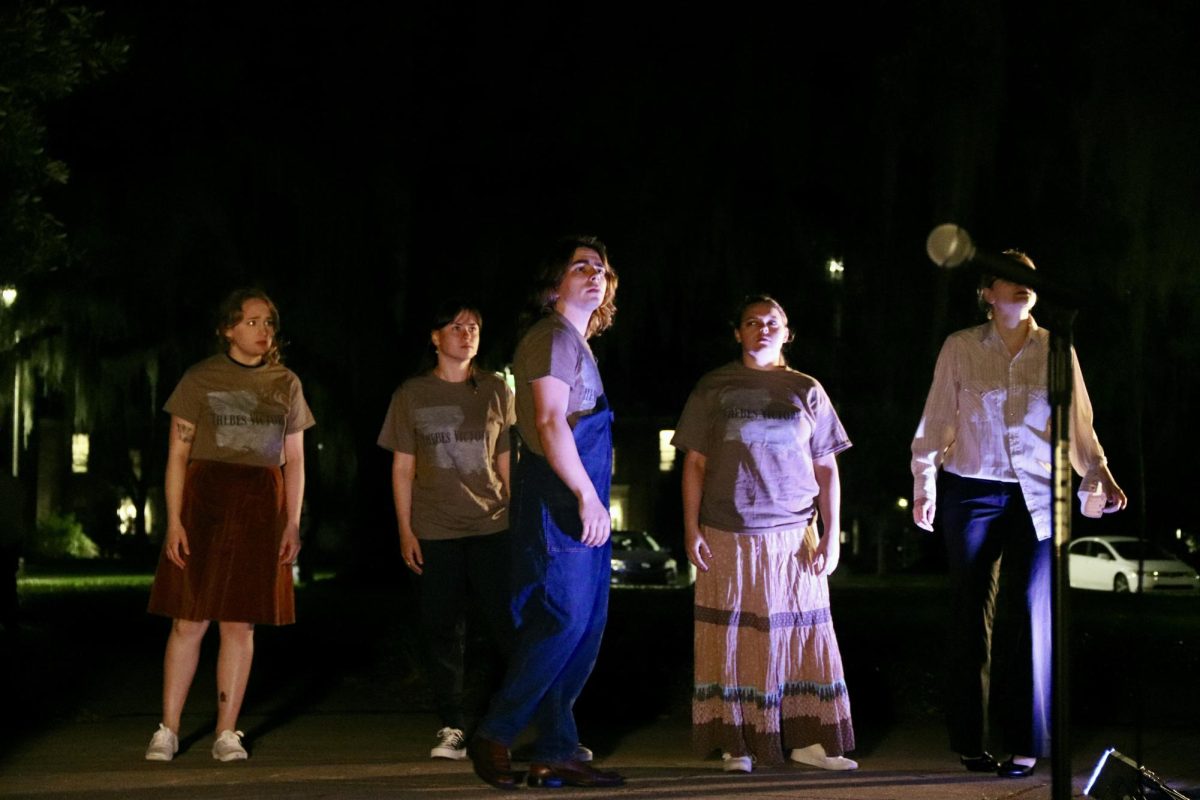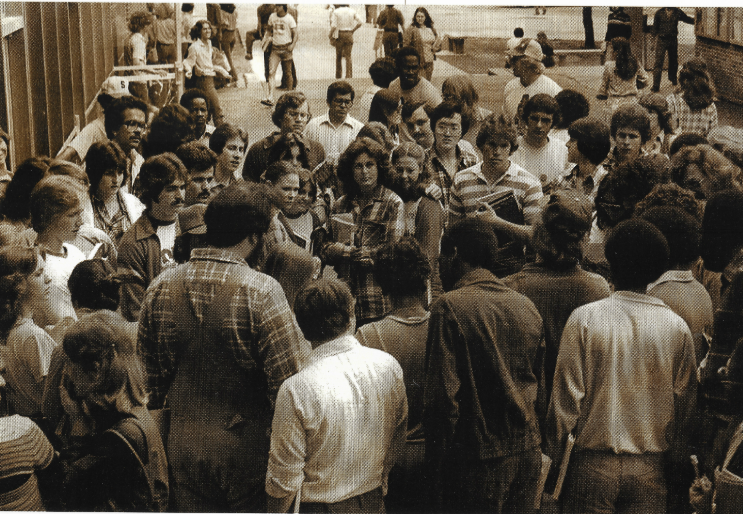|
Getting your Trinity Audio player ready...
|
My days of casual film viewing are over. Now, I’m Southeastern’s newest, loathsome cinephile snob.
I’ve undergone the standard initiation: buying a MUBI subscription and watching low-budget arthouse films in the early hours of the morning. I even went to the movie theatre by myself, specifically to watch Winter 2024’s critical darling, “Anora.”
American director Sean Baker’s latest film has had a stellar year. In May, “Anora” won the prestigious Palme d’Or at the Cannes Festival. It was released in theaters on Oct. 18, tripling its reported $6 million budget. Critics and audiences adore the film, and its courting heaps of Academy Award buzz.
I went to the local movie theatre on a Saturday afternoon, looking to make my own judgments of the film with my burgeoning cinephile eye. I’m incredibly happy I made the trip; “Anora” is pure cinematic excellence, and it was the greatest filmgoing experience of my lifetime.
Every aspect of this movie is completely enthralling. Baker’s visual artistry and the cast’s emotional depth sing in near-perfect harmony, culminating in a movie rich with compelling drama, hilarious comedy and aching sincerity.
“Anora” follows Ani (whose full name is Anora), a young sex worker swept up in a whirlwind romance with Ivan, the young son of a massively wealthy Russian oligarch, leading to a Las Vegas wedding. Ani’s rapidly increasing fortunes crash when Ivan’s parents find out about his marriage.
Baker’s films are well-known for featuring sex work, and I appreciate his dedication to humanizing an often demonized profession. The dialogue highlights the struggles sex workers endure in a field that often lacks worker’s benefits, such as healthcare, and where predatory men sometimes lurk.
Ani, due to these conditions, is fierce and strong, quick to judge and slow to change her mind, all as a means to protect herself.
“Anora,” in particular, studies betrayal and how it slowly mangles our once-cherished relationships. After such a picturesque romance, Ivan abandons Ani in an attempt to escape from his father’s goons. For the rest of the film, he shows little care for his wife or his responsibilities, causing Ani’s interest in him to steadily devolve into open disgust.
The film’s themes are this impactful, thanks to magnificent performances from the cast. In particular, Mikey Madison as Ani, Mark Eidelstein as Ivan and Karren Karagulian as head goon Toros were utterly captivating to watch.
Eidelstein perfectly conveyed Ivan’s youthful, aloof zeal. Ivan is fun to party with, but he’s deeply childish, irresponsible and shallow, and Eidelstein’s off-the-wall energy reflects his immature mindset.
For much of the film, I was mainly enamored with Karagulian. Toros is a longtime employee of Ivan’s parents, and you can feel his exhausted but ever-present loyalty to them. He does morally gray things during the movie, but Karagulian’s sincerity keeps the audience from disregarding him as a stereotypical lackey.
He genuinely cares for Ivan, despite his understandable frustrations with him, and he’s regretful for Ani’s involvement with Ivan and his wealthy family. Karagulian effectively gives dimension to Toros’ personality, and I found myself hoping Toros sees better, easier days.
The movie’s greatest performance overall, though, is Madison as Ani. Her range as the lead character is ridiculous and a marvel to witness. The last 20 minutes of the film especially display her dazzling talent. In the end, once her marriage is annulled, she snaps back at Ivan’s mother for her disrespectful comments about her profession, once again showing off Ani’s fiery resolve.
Then, the film rapidly quiets down, leaving us with just Ani and Igor, one of the goons, during her final night in Ivan’s mansion. She loathes his kind exterior, which contrasts with their violent altercation earlier in the film, telling him she thinks he has “rape eyes.”
In this scene, Madison manages to juggle an array of implicit and explicit emotions: she maintains Ani’s snarkiness and reveals her fears and potentially horrific past experiences as a sex worker and a woman, which warrant her fiercely protective attitude, all while hinting that Igor’s genuine kindness may slowly be cracking her steely exterior.
The final scene cements Madison’s performance as the most vivid and jarring I’ve personally ever seen. Igor brings Ani home, ending her brief stint as a filthy rich individual. She works in a largely transactional profession where intimacy is mostly a farce; thus for his benevolence, Ani “rewards” Igor with sex — at first, anyway.
After a minute of hesitancy, he gives into her advances, making the intimacy real. In that moment, she stops, collapsing into tears as the full weight of her experiences with Ivan bear down upon her.
Madison’s breakdown was visceral and gutting. I felt my chest concave, and anxiety ran through my body. The film ends at that moment, cutting to the credits in pure silence. Ending with Ani in emotional disarray reflects the trust Baker had in Madison’s ability, and she honored his faith with devastating gusto.
If awards ceremonies are competent, they’ll shower “Anora” with gold trophies and hasty speeches in the coming months. “Anora” is a masterpiece, one I fully believe will be regarded as a classic in due time.
This movie was my first time heading to the movies by myself, and it was greater than I could’ve ever anticipated. I’ve enjoyed films in the past, but I’ve never felt thankful for a film’s existence. “Anora” changed that.
Go see “Anora” while it’s still in theaters; if you do, you might even see me in the audience. I may go see it a second time, maybe even a third or a fourth. I want Baker and company to send me into another emotional tumult. I want to experience it all over, again and again.













